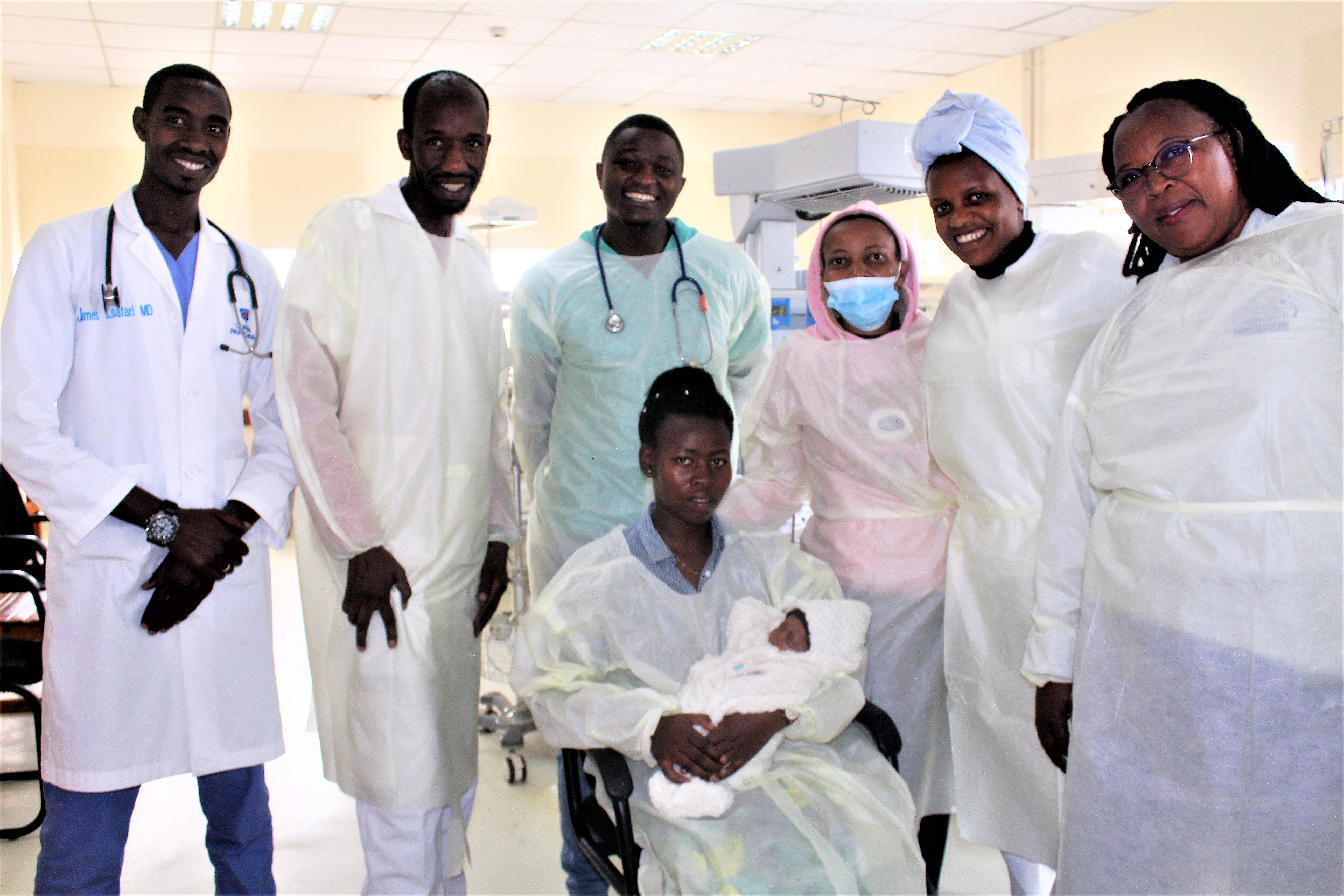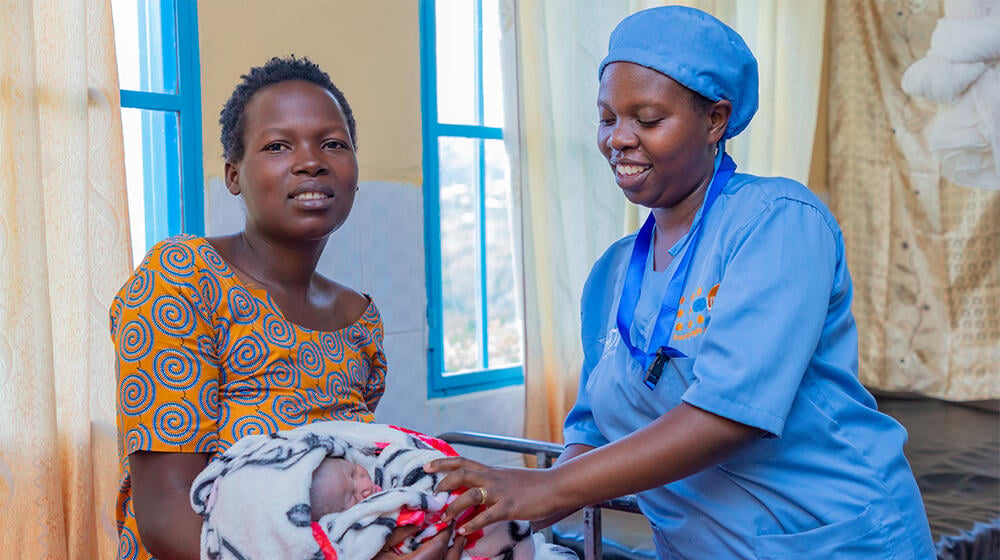Over the past decade, Rwanda made significant progress in decreasing Maternal Mortality Rates from 487 to 203/100,000LB. Currently, 93% of women give birth in a health facility. One of the main contributing factors to this has been educating midwives in the country.
The 2021 State of the World’s Midwifery report affirms that if we increase the number of well-educated midwives and the quality of care that they provide, an estimated 4.3 million lives will be saved a year by 2035. When midwives are well trained, adequate in number, and appropriately supported they can avert about two-thirds of preventable maternal and newborn deaths. Yet only 42 per cent of midwives work in the 73 countries where more than 90 per cent of all maternal and newborn deaths and stillbirths occur. Numerous underserved communities grappling with high rates of maternal and neonatal deaths face substantial shortages in the presence of these critical healthcare providers, falling far below the World Health Organization’s minimum recommendation of 4.2 midwives per 1,000 people.
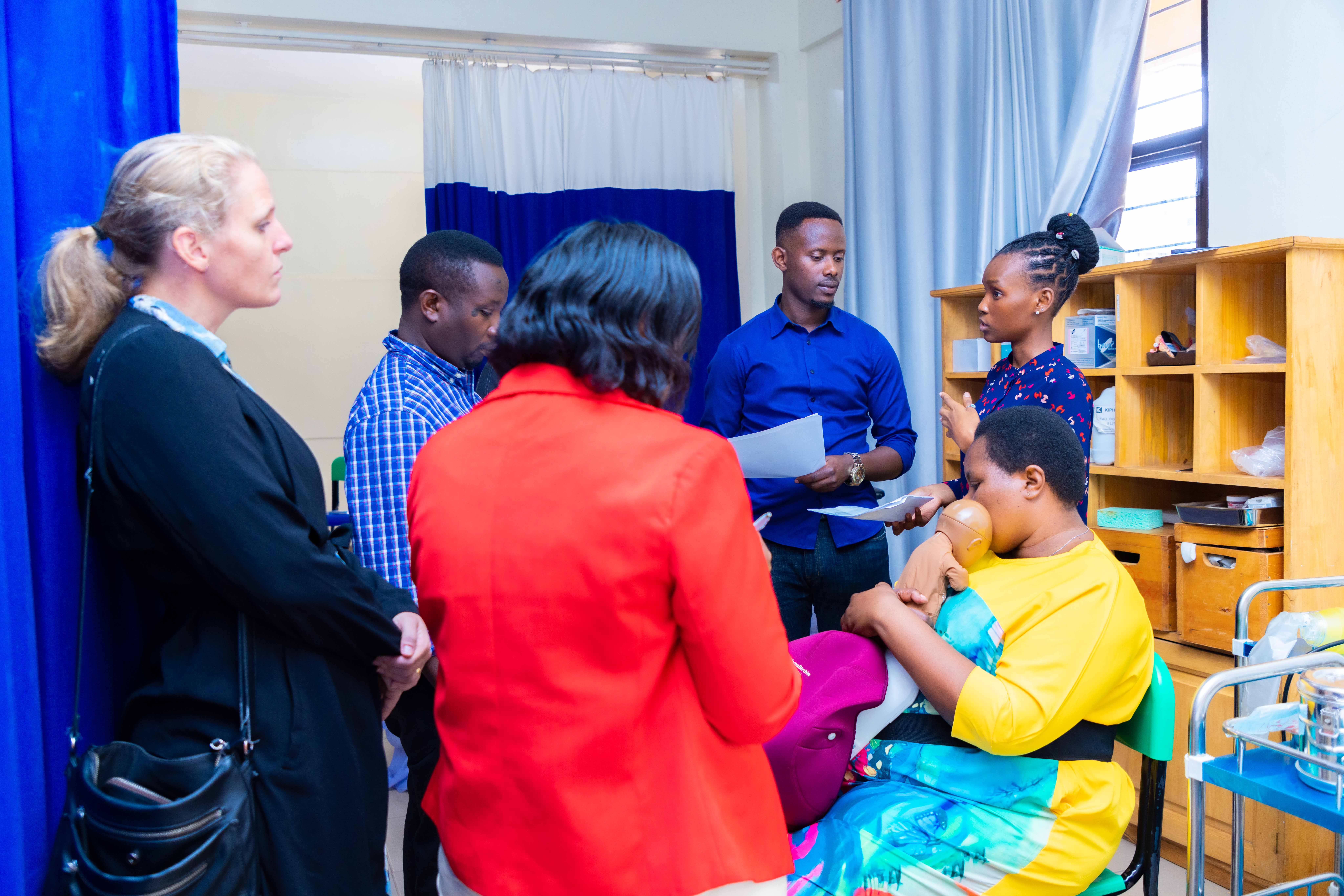
UNFPA’s midwifery strategy specifies four pillars through which the midwifery profession is strengthened. The first pillar is through Education, the second through Regulation, the third through Association, and the fourth is through increased investment in midwifery programming.
In Rwanda, UNFPA works with the Ministry of Health, the Ministry of Education through the University of Rwanda, and other partners to improve the midwifery profession following these four pillars. UNFPA supports (1) midwifery education through scholarships for Master’s and PhD students and providing simulation-based training to enhance midwifery education both pre-and in-service using a mentorship program; (2) strengthening the Rwanda Association of Midwives; (3) Rwanda midwifery’s regulation, for instance, a midwifery task force sub-TWG was introduced; and (4) keeps advocacy for investments in midwifery programming.
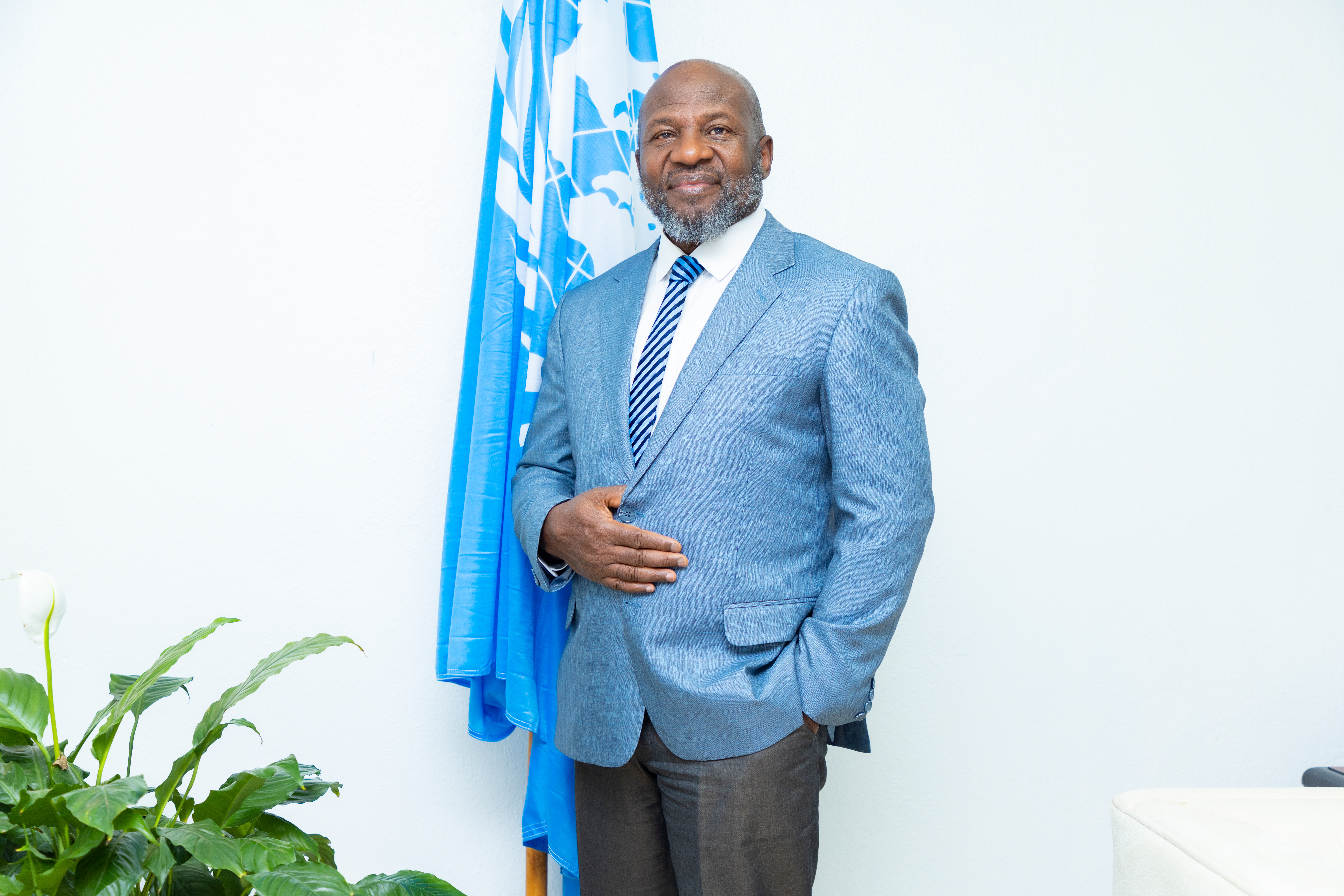
UNFPA commends the Government of Rwanda for its tireless efforts to reduce maternal and neonatal mortality and morbidity. UNFPA is committed to continuing work with the Ministry of Health to strengthen the midwifery profession through education as well as training for midwives and students. Said Kwabena Asante-Ntiamoah, UNFPA Representative
Currently, there are 2006 graduated midwives in the country from the University of Rwanda which operates on three campuses (Remera, Rwamagana and Huye) and 3 private institutes (Kibogora Polytechnic, East Africa Christian College, Ruli Higher Institute for Health).
I used to be a nurse for a long time. When I heard the government’s plan to establish schools of midwifery, I said this is the right time for me to join the midwifery profession. Said Murekatete Pascasie, a passionate midwife at Rutongo Hospital
When Murekatete decided to go back to school to acquire hands-on skills in midwifery, she was 36 years old with 6 kids. As a former nurse with 6 years of experience in that sector, Murekatete said that her passion and love for human wellness, as well as realizing the struggle that a mother passes through during pregnancy, had pushed her to beat the odds to become a professional midwife.
After realizing how women struggle during pregnancy and childbirth and looking at how well I could contribute to saving more mothers and newborns, I decided to go back to school and graduated in 2016. This was achieved because of the government of Rwanda and its partners’ efforts to improve maternal health. I think this is the most fascinating decision I have ever made. - Narrates Murekatete Pascasie.
One such example is the story of a six-month-old baby named Jolly, born on the 1st of June 2022 weighing only 600 grams. She was admitted to Rutongo Hospital in Rulindo District, where Murekatete works as a midwife.
The hospital, already overwhelmed with babies born with various problems, Murekatete decided to take care of the newborn despite the odds stacked against her. With the hard work and dedication of the midwives and hospital staff, after 3 months, Jolly’s weight was 1.8 kg which was strong enough to release her to home and continue to develop.
When the mother reached us, everyone was scared but we were quick to help her. It was the first time to take care of such a very low birth weight neonate at our hospital capacity. If we managed to do this at our hospital level, it means it is possible all over the country. My sincere appreciation to all staff, especially midwives who dedicated their full time, fighting all odds to save this neonate. - Dr Aime Patrick Ntihabose, Director General of Rutongo Hospital
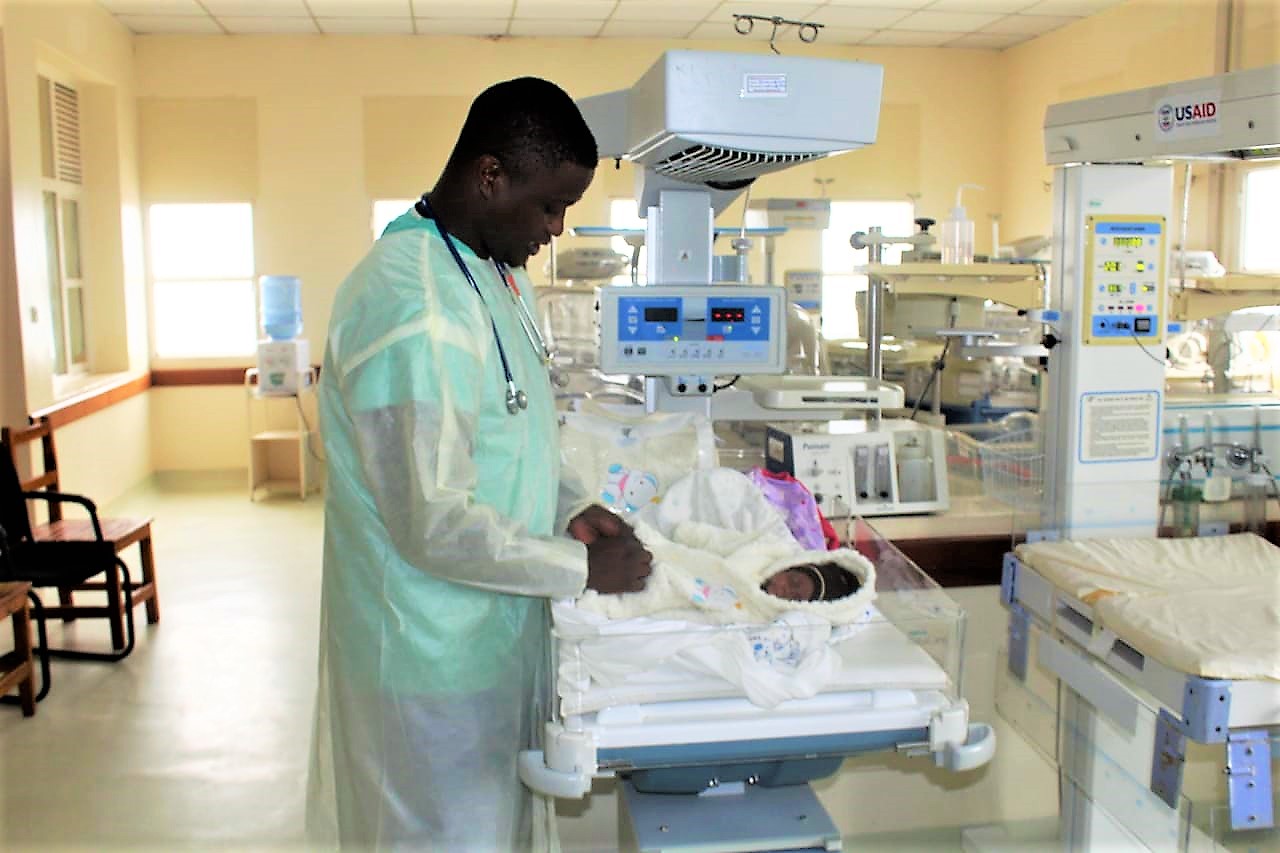
Rwanda’s progress in reducing maternal mortality rates and increasing facility-based deliverables is closely linked to strengthening the midwifery profession. The commitment and dedication of well-educated midwives have played a pivotal role in saving lives. However, the shortage of midwives in underserved communities remains a challenge. UNFPA, in collaboration with the government of Rwanda, continues to support the midwifery agenda through education, regulation, association, and increased investments. The Commitment ensures ongoing progress in improving maternal and neonatal health in Rwanda and emphasizes additional investment in midwifery.
